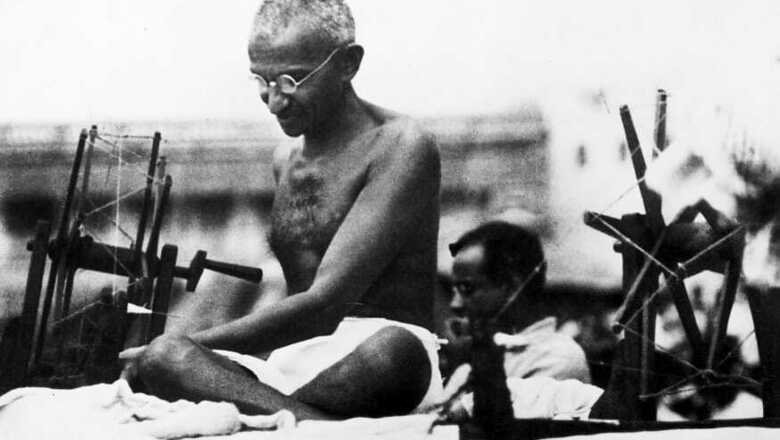
views
New Delhi: The Supreme Court on Friday wondered whether it will be “wise and legal” to reopen Mahatma Gandhi’s assassination case after almost six decades.
A bench of Justices SA Bobde and L Nageswara Rao raised several questions over the legality and maintainability of the PIL but agreed to examine various aspects of it before taking a final call.
The court asked senior advocate Amarendra Sharan to go through the petition and several documents relied upon by petitioner Dr Pankaj Phadnis, a researcher and a trustee of Abhinav Bharat, Mumbai.
It requested Sharan to examine if the Court should get into this issue at all. "We find it difficult to say it can be done in law. But you can see his passion. You examine the petition and tell us what you think," Justice Bobde told Sharan. The bench will hear the case next on October 30.
When the hearing began on Friday, Phadnis sought for some time to adduce some more documents. The bench, however, sought to know about the merits of the PIL.
“Why should we reopen something, which happened in 1948-49. Then Kapoor Commission report also came some 40 years ago,” the Court questioned Phadnis.
Phadnis responded that the Supreme Court never had the opportunity to examine the case since Mahatma’s two assassins were executed in 1949 whereas the SC came into being in 1950.
The bench replied that there was nothing wrong in law if the convicts were hanged following an affirmation by the high court concerned.
“What is the new information you have now? We can’t go into passion but only on law. You say there was a third person involved… an organisation. We cannot convict organisation. So do you know if the third person from that organisation who you allege to be involved is even alive today? Do we order investigation into a matter in which even the person concerned may not be alive?” it asked Phadnis.
Phadnis said that there were adequate evidence available in national archives and with other governmental agencies in India and in the US that could form the basis of an investigation even today.
To this, the bench retorted: “Your intentions could be noble but the real question is whether it will be wise and legal for the Court to entertain such a petition. There is a law of limitation too. Even the Evidence Act could be a bar.”
Phadnis has sought the re-opening of investigation into Mahatma Gandhi’s murder, suggesting whether it was one of the biggest cover-ups in history.
In the petition, Phadnis has also questioned the ‘three bullet theory’ relied upon by various courts of law to hold the conviction of accused — Nathuram Godse and Narayan Apte who were hanged to death on November 15, 1949, and Vinayak Damodar Savarkar who was given the benefit of doubt due to lack of evidence.
He has claimed that the Justice J L Kapur Commission of Inquiry set up in 1966 was not able to unearth the entire conspiracy that had led to the killing of Gandhi.
Inspired by Savarkar, Abinav Bharat, Mumbai, was set up in 2001 and it claims to work for socially and economically weaker sections with a focus on bridging the digital divide.



















Comments
0 comment